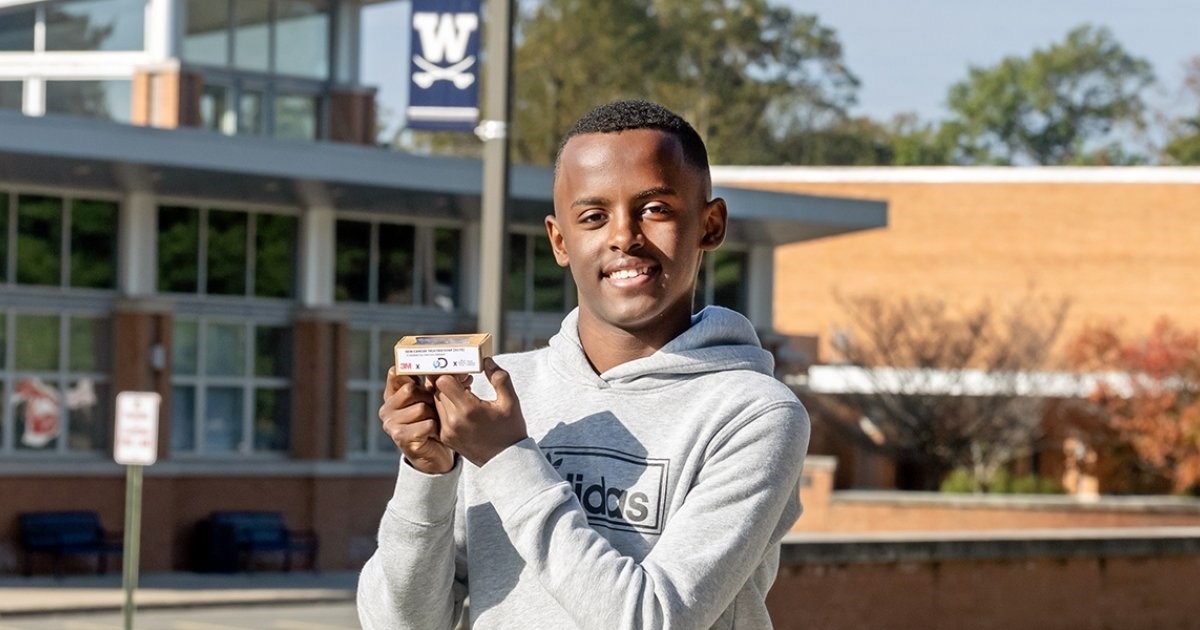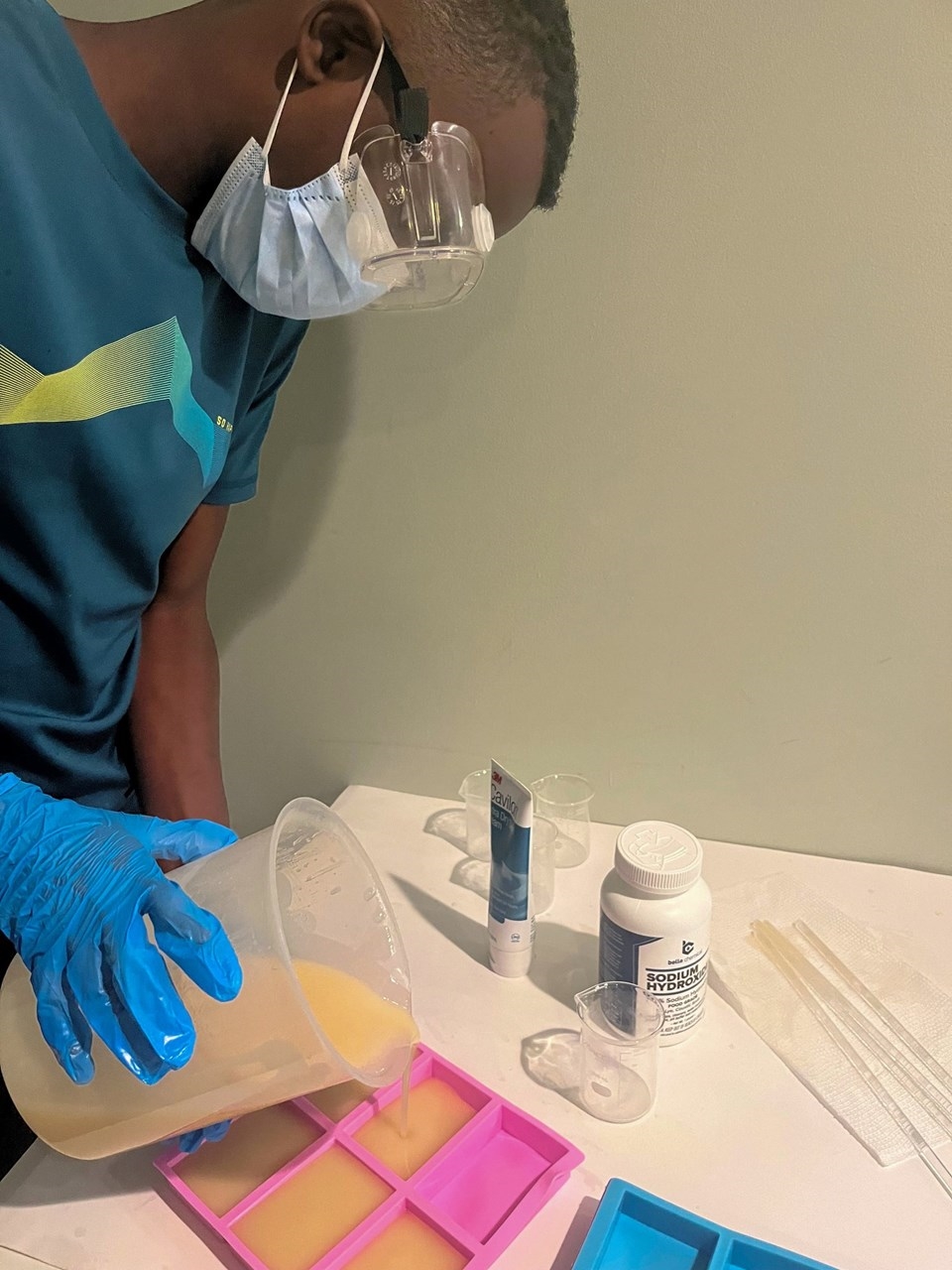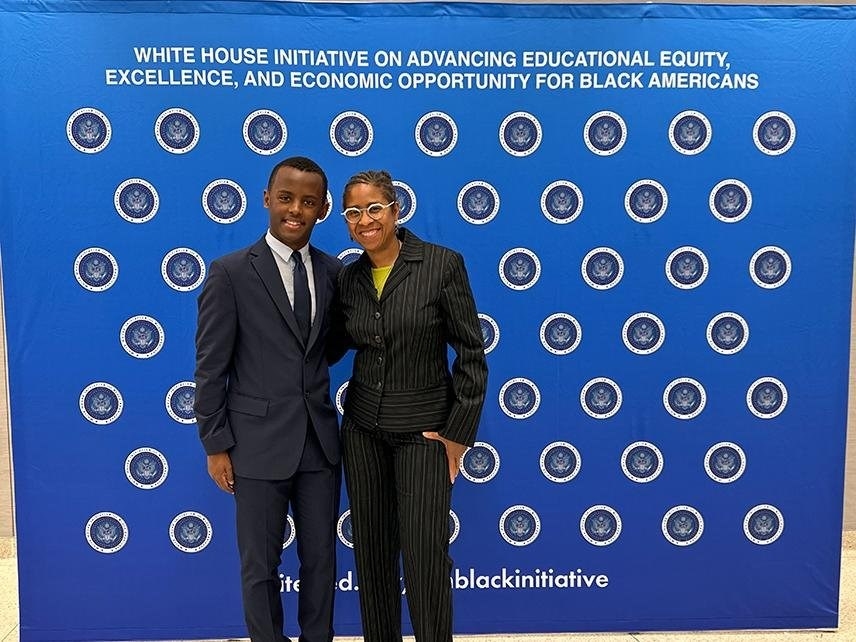14-year-old Heman Bekele from Virginia has recently gained attention for his groundbreaking development of a low-cost, soap-like cancer treatment, which has the potential to transform the accessibility of cancer care worldwide.
According to Time magazine, Bekele created the most dangerous of his self-proclaimed "potions" at 7 years old. By then, he had been experimenting with science for around three years, using whatever household items he could find. He would mix things like dish soap, laundry detergent, and other common chemicals, and then hide them under his bed to see what would happen overnight. Looking back, he admits that his experiments involved a lot of ‘mixing together completely at random.’
 Heman BekeleHeman Bekele
Heman BekeleHeman Bekele
Bekele’s interest in science and technology was nurtured by his parents, mother Muluemebet, a teacher and his father Wondwossen, a human-resources specialist for the U.S. Agency for International Development, who made sacrifices by coming to an unfamiliar country in service of their children’s education, and through participation in various school science fairs and STEM programs at Woodson High School in Fairfax County.
In October 2023, Bekele entered the 3M Young Scientist Challenge, one of the most prestigious science competitions for middle and high school students in the United States. At just 14 years old, Bekele competed against thousands of young scientists from across the country, each presenting innovative ideas that could potentially solve some of the world’s most pressing challenges.
Bekele’s project stood out for its ingenuity and potential impact. He developed a novel approach to cancer treatment—a soap-like substance that can be applied to the skin to help treat skin cancer. This treatment is designed to be both effective and affordable, addressing one of the critical barriers to healthcare in developing countries and underserved communities where expensive cancer treatments are often inaccessible.
The inspiration behind this project was from some of Heman’s earliest memories when living in Addis Ababa before emigrating to the U.S. He recalls seeing laborers working in the blistering sun, usually with no protection for their skin. His parents taught him and his sisters to cover up, and explained the dangers of too much time outdoors without sunscreen or proper clothing.
 Heman BekeleHeman working on the very first prototype of“When I was younger, I didn’t think much of it, but when I came to America, I realized what a big problem the sun and ultraviolet radiation is when you’re exposed to it for a long time.”
Heman BekeleHeman working on the very first prototype of“When I was younger, I didn’t think much of it, but when I came to America, I realized what a big problem the sun and ultraviolet radiation is when you’re exposed to it for a long time.”
Bekele also recognized the disparities in healthcare access around the world - in many parts of the globe, cancer treatment is a luxury that only a few can afford, leading to high mortality rates, particularly for treatable forms of cancer like skin cancer. By developing a low-cost solution, Bekele aimed to bridge this gap and bring life-saving treatment to those who need it most.
 Heman BekeleHeman with his research mentor at a White House event
Heman BekeleHeman with his research mentor at a White House event
The 3M Young Scientist Challenge
Bekele’s innovative project earned him the top prize at the 2023 3M Young Scientist Challenge, a recognition that came with a $25,000 cash prize. More importantly, it placed him in the spotlight as one of the world’s most promising young scientists. The win is not just a personal achievement for Bekele but also a significant milestone in the journey towards more accessible global healthcare.
Throughout the competition, Bekele received mentorship from experts at 3M, particularly Deborah Isabelle, who helped him refine his project and consider its real-world applications. The following February, Bekele attended a networking event hosted by the Melanoma Research Alliance, in Washington, D.C. There, he met Vito Rebecca, a molecular biologist and assistant professor at Johns Hopkins in Baltimore. Impressed by Bekele’s passion, Rebecca agreed to sponsor Heman, acting as his principal investigator and inviting him to work at the Baltimore lab and last summer Heman has spent part of every weekday working in a lab at the Johns Hopkins Bloomberg School of Public Health in Baltimore, hoping to bring his dream to fruition. Said Bekele, “I’m really passionate about skin-cancer research; whether it’s my own research or what’s happening in the field. It’s absolutely incredible to think that one day my bar of soap will be able to make a direct impact on somebody else’s life. That’s the reason I started this all in the first place.”
Heman remains humble about what he’s accomplished in just 15 years. “Anybody could do what I did,” he says. “I just came up with an idea. I worked towards that idea, and I was able to bring it to life.” However, he admits that he's also concerned. Scientific advancements, whether in medicine, engineering, or artificial intelligence, are happening at an increasingly rapid pace. He worries that people might be reaching a point where it's becoming overwhelming. “A lot of people have this mindset that everything’s been done, there’s nothing left for me to do,” he says. “To anybody having that thought, [I’d say] we’ll never run out of ideas in this world. Just keep inventing. Keep thinking of new ways to improve our world and keep making it a better place.”
Find out more on Heman’s website: www.hemanbekele.com
Page created on 9/2/2024 12:38:47 PM
Last edited 9/2/2024 12:51:01 PM
